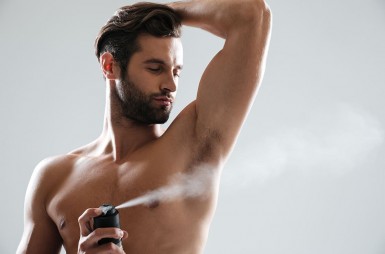Sports nutrition:
which energy products to choose?
Written by Paul Musset, Doctor in Pharmacy | published on | updated on 17/04/2024

Whether you are an occasional athlete or a top athlete, you no doubt know that to have cast-iron health and good performance there is no secret: a balanced diet is the basis of everything. What are the most useful food supplements to increase energy without overloading your body?
The specific nutritional needs of athletes
Regular athletes need an increased calorie intake, but this is not all. Their metabolism is seriously changed by intense sports practice; therefore all of their nutritional requirements are different. Thus, athletes who are looking to grow muscle mass will need more proteins, which are the essential components of muscles. Endurance athletes will have to manage their carbohydrate intake in order to provide their body with enough fuel for long-term. As for those who wish to "improve" their silhouette, it is important to limit the lipid intake, whilst still absorbing enough energy to keep and maintain muscle mass.
But it's not just protein and carbohydrates that are important. Minerals and vitamins are too! In addition, heavy sweating during exercise eliminates not only water, hence the importance of hydration, but also mineral salts, which must be replenished via food intake. A balanced diet may be sufficient for occasional athletes, but it is not always easy to ensure! Well-chosen food supplements for sport will therefore be useful for them, and they will be almost essential for people who practice sport intensively.
Energy supplements for athletes
Energy bars and drinks are a good source of calories for athletes, especially during exercise. That said, since the metabolism is a set of complex chemical reactions, many other nutrients are involved in the management and use of this energy by the body, via specific biological mechanisms.
- Proteins and amino acids: while proteins are especially useful during periods of muscle growth, certain amino acids are necessary for everyone. The best known are BCAAs, which reduce the production of lactic acid and the breakdown of muscle proteins, and glutamine, a deficiency of which can force the body to break down muscle proteins, but which also has the capacity to strengthen the immune system;
- Mineral salts and trace elements: zinc allows the proper functioning of dozens of enzymes metabolizing carbohydrates, lipids and proteins, and is therefore essential for energy production; iron is needed for the formation of haemoglobin and therefore plays a role in the oxygenation of tissues (a deficiency mainly relates to women); magnesium plays an essential role in muscle contraction, but also in the nervous system;
- Omega-3s, which are found in particular in fatty fish, reduce inflammatory phenomena;
- Hyaluronic acid and collagen, naturally present in the body, can be taken in addition to strengthen the elasticity of the joints;
- Vitamins can be useful especially in the case of fatigue, infection or at the change of seasons.
How is energy produced within muscles?
Thanks to a small molecule called ATP (adenosine triphosphate). The ATP reserves last only a few seconds, so it must be constantly re-manufactured. It is cellular respiration which makes it possible to produce ATP in the body, from oxygen and sugar, for endurance sports. But in the event of intense activity, during the first minute or so, other reactions come into play: the production of ATP by degradation of muscle glycogen (a reaction which also produces lactic acid responsible for body aches), and synthesis of ATP by reaction between a muscle molecule, creatine phosphate, with ADP.
Energy drinks for sport
There are three main types of energy drinks for athletes:
- Waiting drinks, also called boosters or “pre-workout”, are to be consumed in the hours preceding intense physical effort. The best way to drink them is to take small sips regularly at the rate of half a litre per hour. These drinks help maintain a satisfactory level of hydration, but also keep glycogen reserves available in the muscles and liver, while avoiding the risk of hypoglycaemia by a moderate intake of well-chosen carbohydrates (such as maltodextrin) . Beware of drinks too enriched with caffeine, taurine and other stimulants;
- Energy drinks: during exercise energy drinks rich in rapidly assimilated carbohydrates but which also contain sodium are useful: this mineral reduces dehydration, among other functions in the body. This sodium intake is actually essential for very intense marathon-style events, because a deficiency can be a danger to life. These drinks may also contain vitamins and other minerals such as magnesium or potassium;
- Recovery drinks: to be taken in the minutes following the end of the activity, they contain proteins which will help the muscles to replenish their reserves of proteins, minerals and trace elements, and carbohydrates.
Energy bars and solid energy supply
Whilst an energy drink is the best way to boost your body during exercise, a good quality energy bar can be useful, easily digested (so avoid small pieces and cereal bars at this time) and well dosed with carbohydrates, proteins , amino acids, vitamins and minerals. To be consumed in small bites. One bar per hour during exercise.
After exercise, dried fruits (like raisons or apricots), oilseeds such as nuts or almonds, and protein foods can help you recover faster and replenish your reserves.
If you are looking for energy supplements for sports, Cocooncenter offers a range of quality energy products, carefully selected for their balanced composition.
An athlete’s diet must be adapted to the intensity of the activity undertaken and to the type of sport practised. Choose the energy supplements that suit you!
The three key points to remember about energy products for sport:
- Athletes need more calories than others. But this is not a license to eat anything! Metabolism is a complex process and the intake must be balanced in proteins, carbohydrates, lipids, minerals and vitamins;
- Hydration is essential to avoid poor performance, but also to avoid serious health hazards. Water is essential, but well-chosen special sports drinks will boost your form;
- Avoid products enriched with exciting molecules, which sometimes pose a danger to the cardiovascular system. Educate yourself and chose quality products!






















